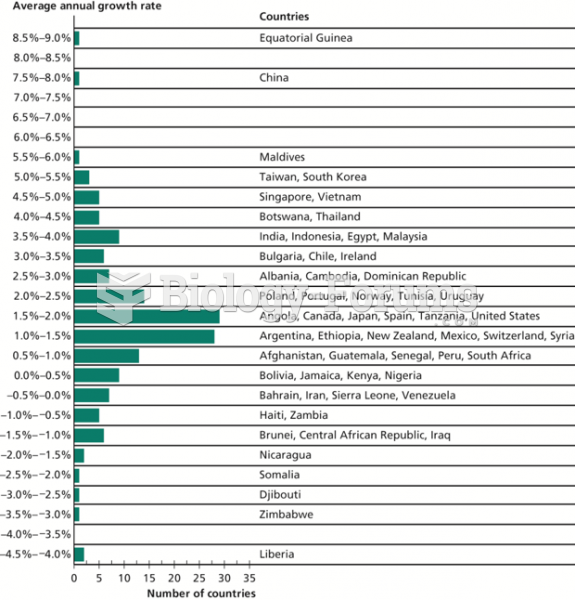|
|
|
Fewer than 10% of babies are born on their exact due dates, 50% are born within 1 week of the due date, and 90% are born within 2 weeks of the date.
People with alcoholism are at a much greater risk of malnutrition than are other people and usually exhibit low levels of most vitamins (especially folic acid). This is because alcohol often takes the place of 50% of their daily intake of calories, with little nutritional value contained in it.
In inpatient settings, adverse drug events account for an estimated one in three of all hospital adverse events. They affect approximately 2 million hospital stays every year, and prolong hospital stays by between one and five days.
Colchicine is a highly poisonous alkaloid originally extracted from a type of saffron plant that is used mainly to treat gout.
Never take aspirin without food because it is likely to irritate your stomach. Never give aspirin to children under age 12. Overdoses of aspirin have the potential to cause deafness.
 The grey side-gilled sea slug Pleurobranchaea maculata. The discovery of tetrodotoxin in this slug i
The grey side-gilled sea slug Pleurobranchaea maculata. The discovery of tetrodotoxin in this slug i
 In 2009, historian Woody Holton described how Abigail Adams shrewdly invested in the Continental Con
In 2009, historian Woody Holton described how Abigail Adams shrewdly invested in the Continental Con





